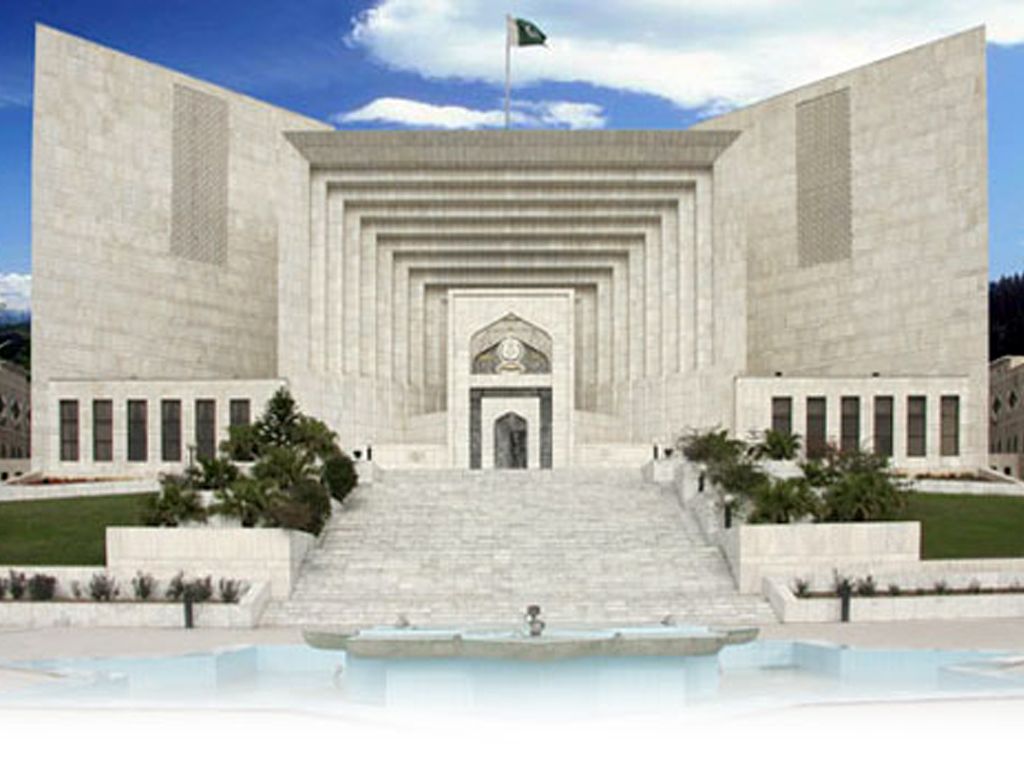Pakistan Muslim League Nawaz (PML-N) and Attorney General for Pakistan Usman Mansoor Awan have requested the Supreme Court (SC) to form a full bench to hear the set of pleas challenging a law that curtails the chief justice’s powers to initiate suo motu proceedings or form benches. The eight-judge bench, comprising Chief Justice of Pakistan (CJP) Umar Ata Bandial and others, heard the pleas that were filed against the Supreme Court (Practice and Procedure) Bill 2023. The CJP had previously turned down the attorney general’s plea to withdraw the stay order restricting the implementation of the bill, which was passed on April 13.
During the latest hearing, the AGP requested the bench to constitute a full court to hear the pleas, and the PML-N’s lawyer also informed the court that they had filed a similar plea seeking the formation of a full court. The top judge questioned the motives behind the government’s demand for a full court, remarking that the current issue was not a case of a constitutional amendment. The bench also directed the lawyers to tell if they had confidence in the current bench or not and if this was the case, then this matter should be sorted first before proceeding.
The case cannot be concluded today as it requires further assistance and arguments from other parties, the top judge remarked while adjourning the hearing for three weeks. He said that some members of the bench were going out of the city; therefore, the hearing was being adjourned for such a long time. The bench also directed the AGP to submit the record of the National Assembly’s proceedings by tomorrow.
On March 28, parliament passed a bill aimed at curtailing the unbridled powers of the chief justice, which restricts the chief justice’s powers to take suo motu notices as well as to constitute benches on his own. Instead, these powers will be vested in a three-member committee comprising the chief justice and two senior-most judges. President Arif Alvi returned the bill back to parliament on April 8, without giving his assent. Subsequently, the lawmakers passed the bill again on April 10 in a joint session and resent it to the president. As per the country’s law, the president has ten days to give his assent to a bill passed by a joint sitting of the Senate and National Assembly. However, even if the president does not give his assent, the bill automatically becomes a law and takes effect after that period, which in this case was April 20. To prevent the bill from taking effect, three petitions were filed in the top court, which will be heard for the third time today.
The SC hearing regarding the Supreme Court (Practice and Procedure) Bill 2023 was adjourned for three weeks after the AGP and PML-N requested the formation of a full bench to hear the pleas. The case requires further assistance and arguments from other parties. The government’s demand for a full court was questioned by the top judge, who also directed the AGP to submit the record of the National Assembly’s proceedings. The bill passed on April 10 aims to restrict the chief justice’s powers and was sent back by the president on April 8 without his assent. Three petitions were filed in the top court to prevent the bill from taking effect.


